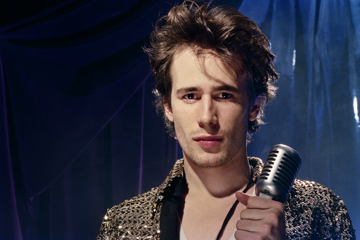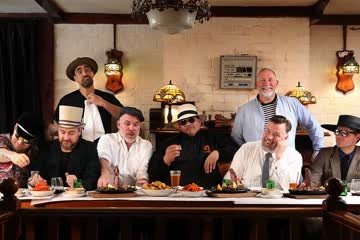A Day At A Time
"Billie is far more fierce, and bold, and sexually aware than I’ve been. At the age of 16, I’d never had a boyfriend, and I still didn’t know how to swear without turning bright red."
52 Tuesdays wears the formalist gimmick of its production on its sleeve: the film was shot over the course of a year in Adelaide, the cast and crew gathering together every Tuesday. “Films are always made in the same way, and so they'll always produce the same outcomes,” says director Sophie Hyde. “And I didn't just want to make the same film. I'm sick and tired of seeing the same characters on screen, and this persistent notion that the most important relationships are romantic relationships.”
Instead, 52 Tuesdays is built around the relationship between a mother (Del Herbert-Jane) undergoing a gender transition, and her teenage daughter Billie (Tilda Cobham-Hervey), undergoing her own coming-of-age change. It's a film, Hyde says, about “questioning the rules and structures of relationships, and families; about gender, sexuality, what it means to be a mother or a child, when you're supposed to be a lover or a friend; all these rules that are in place, that maybe aren't that useful for some people”.
“It's funny,” Hyde admits, “in making a film about people who're dealing with the difficulty of all these rules to relationships, we ended up making up all these rules about how we were going to film it.”
Shooting over a year came naturally to Hyde, a documentarian who previously directed 2011's Life In Movement (a portrait of the Sydney Dance Company) with partner Bryan Mason. But it was all new for Cobham-Hervey, who, though now 19 and tipped for stardom, was but a 16-year-old who'd “never even done a school play before” when she tagged along with friends to an open casting.
Don't miss a beat with our FREE daily newsletter
“I never thought I'd be in a film, and the character description was nothing like me, so I had no fear that I was going to get it,” says Cobham-Hervey. “Billie is far more fierce, and bold, and sexually aware than I've been. At the age of 16, I'd never had a boyfriend, and I still didn't know how to swear without turning bright red. And the first two lines of the film are 'Fuck.' I thought: I didn't know if I can even do this!”
With Cobham-Hervey and fellow teen-co-stars Imogen Archer and Sam Althuizen taking Tuesdays off high school, those at work on the production found their “weeks cycled from Tuesday to Tuesday”. Scripts were only given to actors a week out, and much was improvised which led to life imitating art, and kids growing up on screen. “It was this long, weird process of Tilly informing Billie, and the other way around,” Cobham-Hervey says. “Billie was a tool through which I could explore so many things about growing up, and about the world. It's such an informative year of your existence, 16 to 17, and I don't know who I'd be without that experience, without that character.” And, true to those looking back on their teenaged days, Cobham-Hervey finds it difficult to look back. “I find the film quite hard to watch now,” she admits, “because the experience of making it was so big: it was a whole year of my life. But now it's just an hour-and-a-half long. There was a time, when we were making it, that I couldn't imagine it ever being a film. It didn't feel like a project, it just felt like life.”
“There was a time,” Hyde counters, “that none of us really thought we were making a film. It more felt like we were getting together, and exploring these ideas, playing them out in real locations. There was something nice about it not being made like a normal film, but it could be quite hard. It was a year of really intense relationships. It sounds cliché, but it was really like being in a family: all the good bits, all the shit bits, dealing with each others' stuff, and not being able to run away from it. And we made it!”
It was, in some ways, like being in a family: Hyde directing, Mason producing/lensing/editing, their daughter, Audrey (six at the time, now eight) playing a role, and Hyde's mother even acting for a scene. It was, for Hyde, a particularly personal work: this transgender tale allowing her to explore her own issues with the intense genderisation of young children, and the societal presumptions about motherhood. All those at work on the production thought, through its making, that it was a “niche” passion project, but after winning awards at Berlin and Sundance, Hyde is optimistic there's an audience there for 52 Tuesdays. “I don't think anyone believes this is a perfect film, least of all us, and that's certainly not how we've presented it,” Hyde says. “But there's an honesty inside of it, and there's something interesting in the way that we've made it, and people have really embraced that.”







